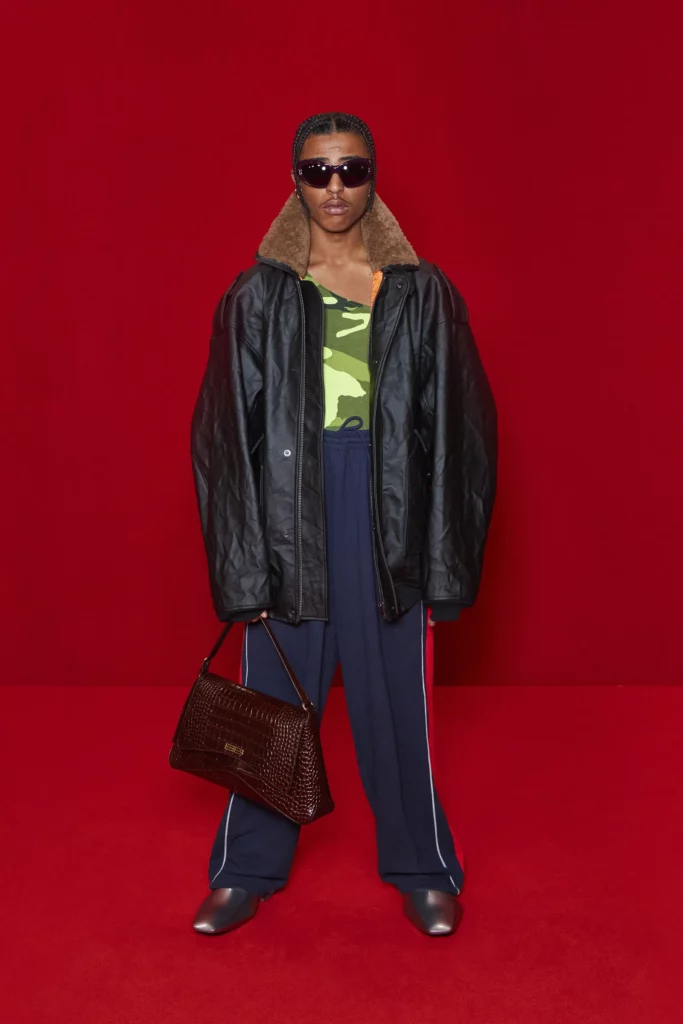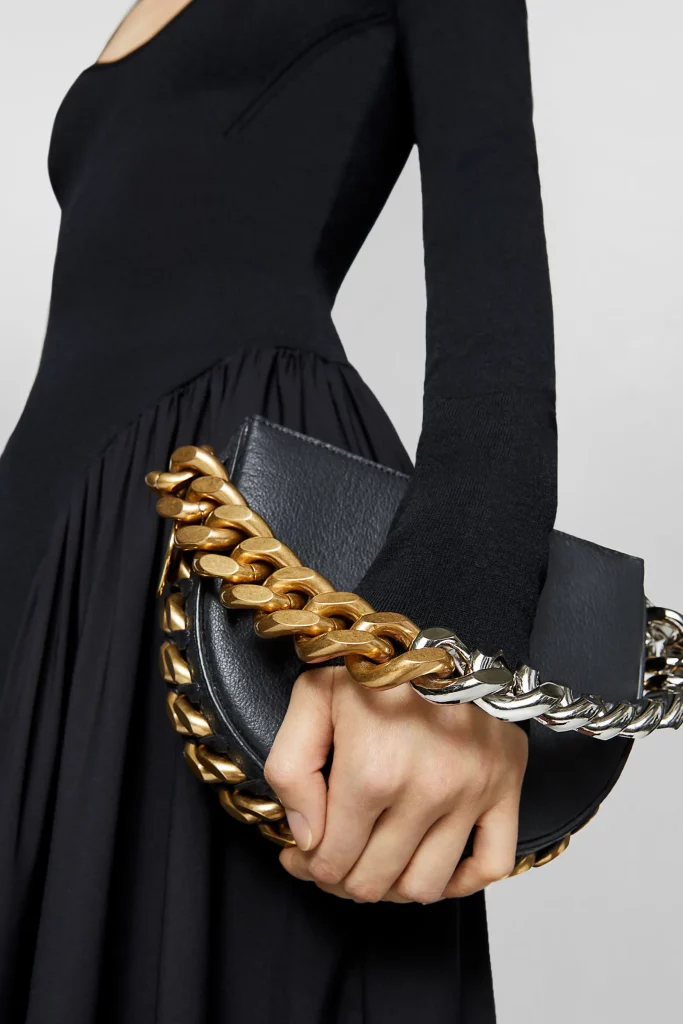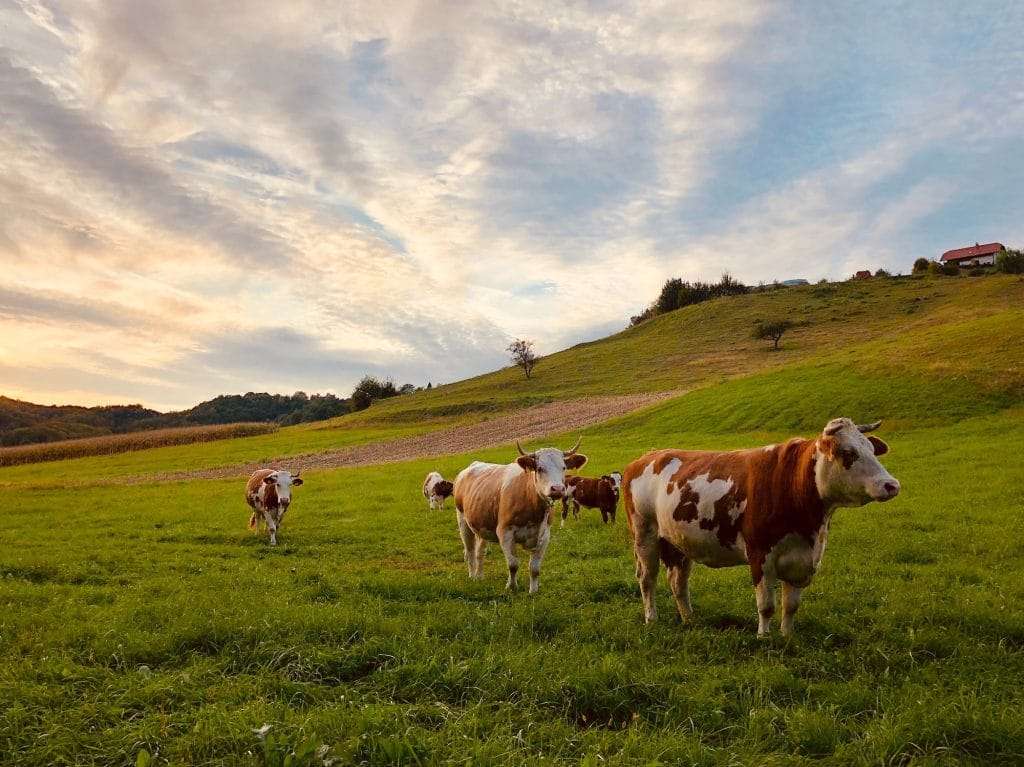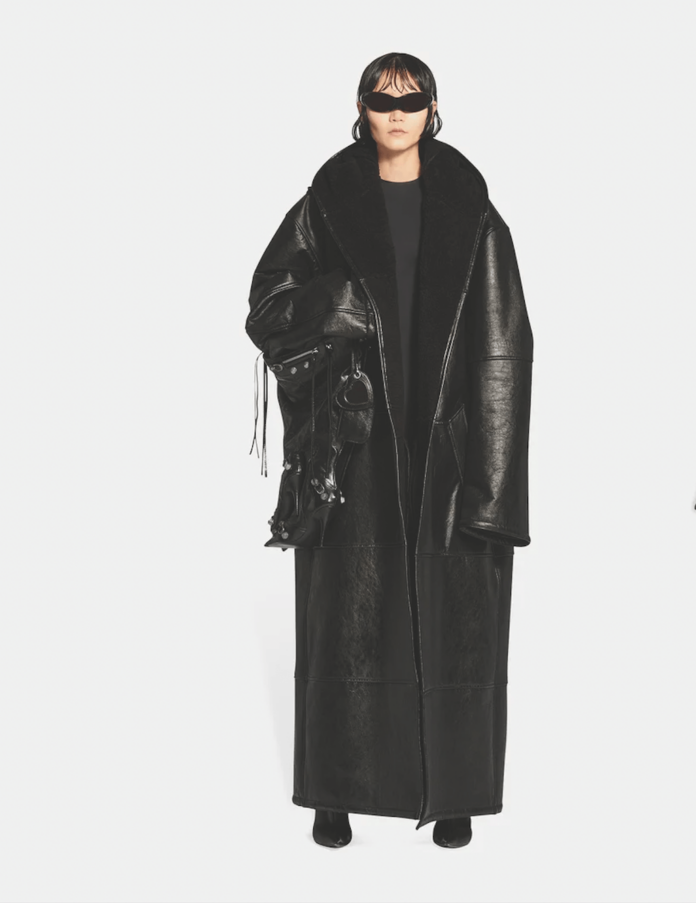Spanish luxury label Balenciaga brings vegan mycelium leather to its newest €9,000 hooded wrap coat in a partnership with material innovations company Sqim.
Mycelium—the rooting structure of mushrooms—has become nothing short of the darling of the luxury industry’s shift away from conventional leather. Hermès, Stella McCartney, and Tommy Hilfiger, among others, have been exploring its potential as a sustainable and more ethical leather.
Balenciaga is the latest to use the innovative textile, bringing the Ephea material from Sqim to a Demna-designed wrap coat that made its debut on the runway in March and is now available in select stores in Beijing, Beverly Hills, London, Milan, New York City, Paris, Shanghai, Tokyo, and Toronto.
Lessening impact, influencing others
“Balenciaga acknowledges the role that fashion plays in depleting and reshaping our natural surroundings and believes that brands are now tasked with finding ways to keep the planet livable,” the brand said in a statement.
“The Balenciaga teams are, together with their value chains, continuously researching and implementing ideas in support of lessening the company’s environmental impact and influencing others to do the same.”

The new coat marks Balenciaga’s first commercial use of mycelium, but not its first bio-based vegan leather. Last October, it debuted a vegan leather jacket made from Desserto’s cactus leaves in a collection that was 95 percent certified sustainable. The SS22 collection featured organic cotton, recycled polyester, nylon, upcycled leather and embroideries.
Balenciaga, which began working with Sqim last year, says it’s looking at new ways to use the mycelium-based Ephea across its other categories. It says Ephea “feels and visibly resembles a hide-based material”, and is also nontoxic and an “organic, viable, and otherwise environmentally sound alternative to leathers and synthetics.”
“We are extremely proud of the collaborative outcome, and the outstanding result achieved, which we believe demonstrates the huge potential of our technology and products,” said Stefano Babbini, Sqim CEO and co-founder.
Fashion industry’s call to sustainability
The fashion industry is under pressure to innovate on textiles as a means to reduce its carbon footprint. Balenciaga parent company Kering just joined the CanopyStyle initiative aimed at reducing cellulose fibers such as viscose and rayon sourced from old-growth forests, which contribute to global deforestation.
The industry is also seeing an uptick in efforts to reduce the use of animal products and opt instead for ‘livestock-free’ options, a move championed by sustainable fashion designer Stella McCartney. Her vegan leather handbag made from mycelium went on sale over the summer.

While demand for mycelium-based leather is high as it mimics the texture and functionality of cow leather, it’s yet to become widely available; McCartney’s Frayme handbag was a limited run as is the new Balenciaga coat. Athleticwear brand Lululemon also recently released two mushroom leather bags.
Materials innovators such as New York’s Ecovative are working to scale production and bring down costs. Its consortium of label partners which includes the U.K.-based Pangaia, Vivobarefoot, and PVH Group’s Calvin Klein and Tommy Hilfiger, could see more affordable options with the material in the near future.
Kering, which also owns Gucci and Saint Laurent, has been working with Bolt Threads’ Mylo mycelium leather. Gucci has its own bio-based vegan leather, Demetra. The luxury group is also exploring a new direction for sustainable leather—cell-based leather—which uses the same tech as cultivated meat to grow cow hide cells in bioreactors. Earlier this year, actor and environmentalist Leonardo DiCaprio invested in California-based startup Vitrolabs, which is working with Kering on developing cell-based leather.
Leather’s carbon footprint
Leather’s footprint spans across industries; its main impact comes from the animal agriculture industry, which accounts for about 15 percent of all global emissions.

According to Faunalytics, if animal husbandry was fully charged to leather’s carbon footprint, “it would make up about 85 percent of the total environmental cost.” But, if the hides were instead considered waste products of raising cows (for food), the group says the environmental impact of animal husbandry would be fully allocated to “main products” like milk and meat. But leather is more often a co-product of milk and meat production, not a byproduct or waste product.
Leather’s impact also extends to the leather tanning and processing industry—one of the leading producers of wastewater. The process also releases dangerous chemicals including VOCs into the atmosphere. The National Institute of Health says the leather tanning production process involves exposure to numerous chemicals, for some of which there is evidence of carcinogenicity in humans.


